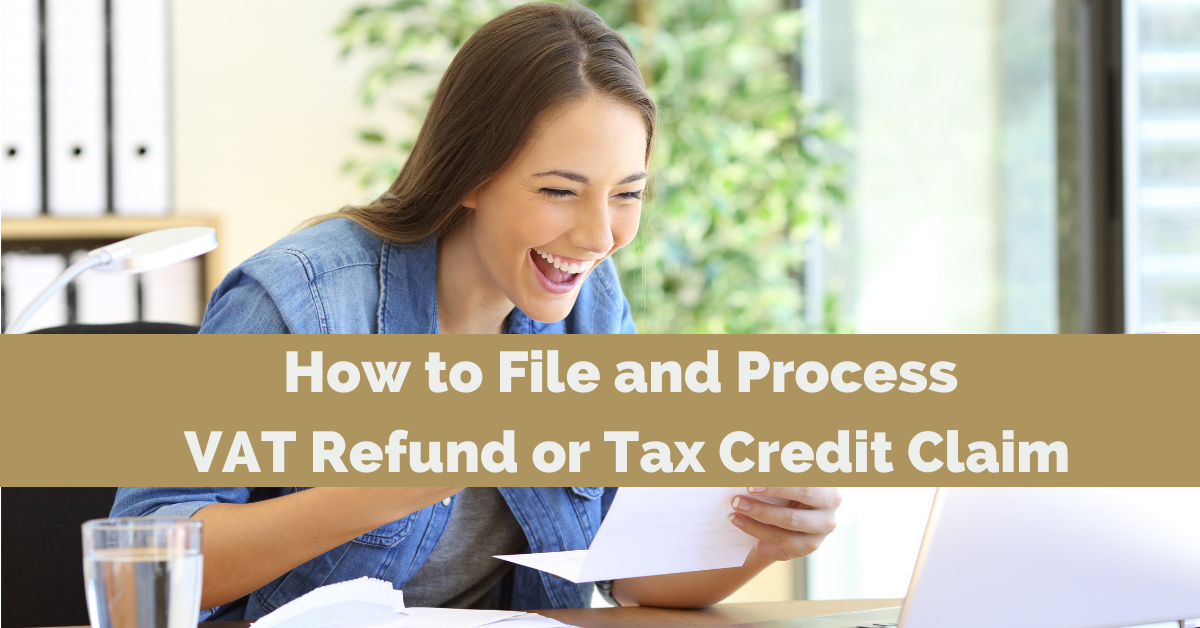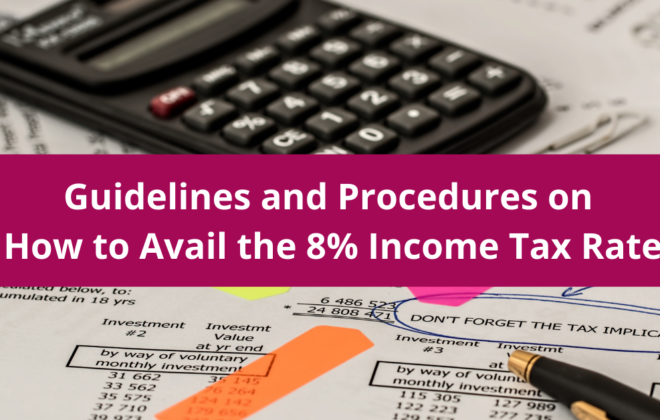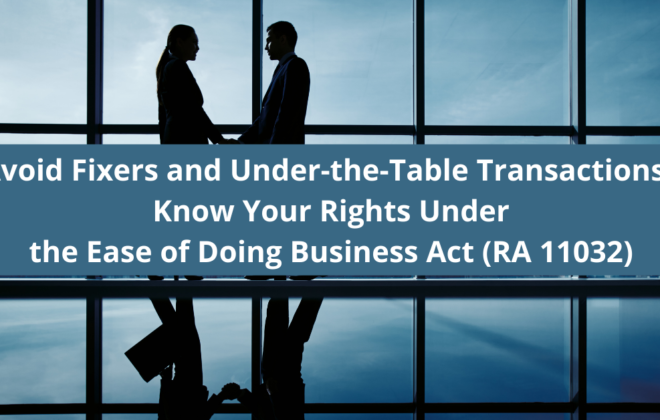How to File and Process VAT Refund or Tax Credit Claim
The extended lockdown has severely affected our economy. We are forced to stay at home, and businesses are struggling to keep their operations going. This crisis has taught us and made us realize how every peso counts.
Business owners welcome with much relief the issuance of Revenue Memorandum Order (RMO) 47-2020. The law updated the guidelines and procedures on processing claims for Value-Added Tax (VAT) refund or credit.
What does this mean to business owners?
More than a year after the health experts discovered the pandemic, businesses can hardly keep themselves afloat amidst the economic standstill due to movement restrictions and other quarantine procedures.
Most of them resorted to reducing manpower, shortened business hours, or adopted a work from home setup. But, all these cost-saving measures proved futile as cash flow is still a problem.
With limited funds and an unstable business climate, the proceeds from the VAT refund would allow them to settle long-outstanding obligations, as additional funds for operation or to finance a new business.
What types of Input VAT are allowed for refund or tax credit?
Not all Input VAT carried in your books are qualified for a VAT refund. It is, therefore, a conservative approach to identify which Input VAT is eligible or not allowed.
According to Republic Act (RA) 8424, taxpayers can claim the following for VAT refund or tax credit certificate:
- Excess input VAT on zero-rated transactions under Section 112 (A) of the Tax Code;
- Excess input VAT upon dissolution under Section 112 (B) of the Tax Code;
- Excessive or erroneous VAT payment under Section 229 of the Tax Code
What are the documents required for Input VAT refund or tax credit?
The submission of the correct documents is crucial in processing your tax refund or tax credit application. BIR will not deny your application as long as you submit the required records. These are the only bases for BIR to approve or not approve your application for a refund.
Several significant changes in the new RMO are beneficial to the taxpayers and other third-party agencies. One of which is the reduction of submission of documents with certification from issuing agencies. Instead, the BIR accepts photocopies of these documents.
Further, taxpayers are no longer required to submit four notarized sworn statements. Now, only one duly notarized taxpayer’s attestation is required containing the following:
- Taxpayer’s profile, books of accounts, and accounting records.
- The total sales declared (with a breakdown as to the amount of zero-rated, taxable, and exempt sales).
- Completeness and authenticity of the documents submitted.
- The ending inventory as of the close of the period being claimed has been used directly/indirectly in the products exported, if applicable.
- The company did not file any or will not file any similar claim from another BIR office or the DOF-OSS (for claims with importation).
The memorandum order also introduced the change on the requirements for substantiating sales and purchases of goods and services. Taxpayers will no longer submit photocopies of sales invoices or receipts for the purchase of goods and services, a process too tedious for the taxpayers.
Instead, the taxpayer claimant will only need to show the original copies, together with the scanned version saved in a memory device.
Read the full text of the Revised Checklist of Mandatory Requirements on Claims for VAT Credit/Refund (Annex A.1) of RMO 47-2020 here.
When and Where to file input VAT refund or tax credit application?
Generally, a taxpayer claimant may apply for input VAT refund or tax credit within two years under the Tax Code, Section 112 C. All documents not received within that period will mean an outright denial of the application.
Taxpayers may file their tax refund or tax credit application at the BIR office of business registration or the Department of Finance. The bureau should act on the application within 120 days from receipt of the complete documents.
Moreover, claimants may file a tax appeal case within 30 days from the date of BIR denial.
What RMOs to follow when filing VAT refund claims?
BIR has issued many regulations related to VAT Refund/Credit. To clarify how RMO 47-2020 applies, the bureau issued RMC 14-2021.
Under this new issuance, VAT refund claims filed before January 19, 2021, will observe the guidelines and procedures found in RMC 47-2019 and RMO 25-2019.
Meanwhile, the VAT refund claims filed on or after January 19, 2021, shall be processed following the provisions of RMO 47-2020.
How we can help you
The idea of a VAT refund can be easy to learn, but the technical aspect of actually filing the claim is daunting. We recommend careful planning and evaluation to get positive results.
There are many considerations you should know before thinking of filing a claim. One, there are costs involved in this exercise, such as filing fees and professional fees of the CPA who will assist you in handling the case with BIR.
Tax refund application is not a one-shot deal but a series of many inquiries and follow-ups from both the BIR and tax claimants. Getting technical assistance from a CPA who has experience working with VAT refunds and tax authorities is suggested.
We at DJKA Business Service Inc. offer professional advice on tax compliance for your business. For inquiries and consultation, kindly email us at info@djkaaccounting.com.
References:
Read the full text of RMO 47-2020 here.
You may access RMC 14-2021 here.
Read the full text of the Revised Checklist of Mandatory Requirements on Claims for VAT Credit/Refund (Annex A.1) of RMO 47-2020 here.
Recent Posts
- New Features and Functionalities of the Online Registration and Update System (ORUS)
- A Comprehensive Guide to Taxation for Freelancers in the Philippines
- New Tax Laws in 2024: What Changes Filipino Taxpayers Should Prepare For
- How to Avoid Common Tax Mistakes in 2024
- Tax Deductions and Benefits Often Overlooked by Filipino Taxpayers





